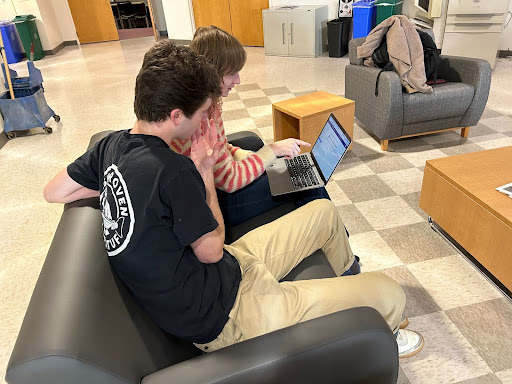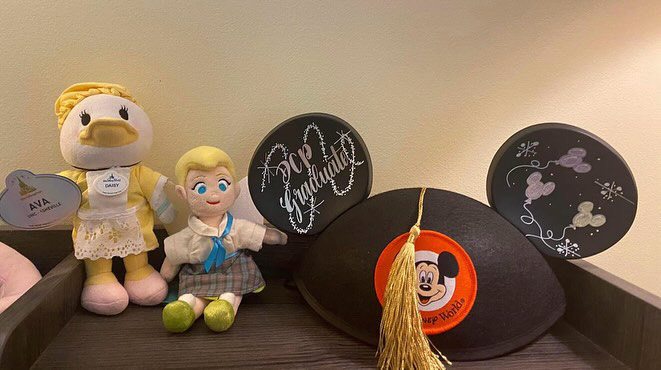As the course ambassador program continues to grow at the University of North Carolina Asheville, students may find themselves wondering what the purpose of their course ambassador is.
Course ambassadors are paid student employees who are hired upon request from their professor. They have often taken the class before becoming the ambassador for it and will have knowledge of completing assignments and solving problems themselves.
Course ambassadors are there to support students in any way possible. This could mean anything from helping a student understand an assignment to offering advice on succeeding in their course.
“Let’s say the student is nervous to talk to the professor. Go through the course ambassador, have them help you bridge that gap. Let’s say the student is having a hard time studying in general and finding time in their life to make that happen. Go to the course ambassador study hours,” said Katie Kitchens, assistant director of advising for programming and development.
Jason Miller is a third-time course ambassador and a junior at UNCA. He said he has had a very positive experience interacting with and mentoring his peers. He said he enjoys being a course ambassador because you can help somebody and even get to know someone new.
“It’s almost like giving them that confidence they need because most of the time my job is just like ‘you can do it, this is how I did it, believe in yourself and it’s gonna go good,’” Miller said.
A course ambassador can provide support to their professor, which often includes setting up Moodle pages or offering a student perspective on small group work.

“It’s almost a dual piece for their work with the professor. They act as almost like a bridge between the student point of view and the faculty point of view. So helping them deliver content in a way that is more approachable and understandable by the students,” said Kitchens.
Professors may choose to have a course ambassador because it will be helpful to students going through the course to have a mentor who can more easily connect with students as a peer.
“In my research methods class, I’m teaching mostly students who want to be psychology majors, and so for them to have a student who’s a step ahead of them in the major, and to be able to ask them questions about courses, about faculty, about the major, help sort of explain those things. I think that’s really great,” said Caitlyn Brez, a professor in the Department of Psychology.
According to Miller, being open to providing support and assistance to students is a large portion of the course ambassador role, and those who accept the job are enthusiastic to do so.
“These are your course ambassadors, someone who is hired to help you. They want to do it, it’s not something they are forced to do. They took the position because they want to help you and they’ve been in your shoes,” Miller said.
The program has continued to grow since its inception. Kitchens said she hopes the flourishing program will continue.
“Our hope is to continue to grow the program both in the services they provide to the students and faculty and, on my end, on the ways that I support the course ambassadors, so any interest is great,” Kitchens said.





















